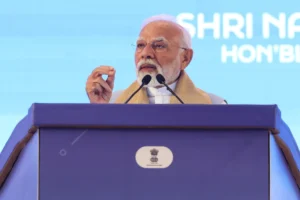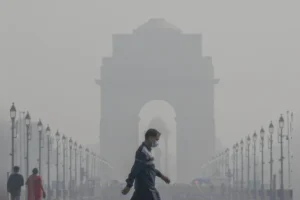
Bangladesh’s ongoing dengue outbreak has intensified, claiming six more lives in the past 24 hours and raising the total death toll to 313 this year.
The Directorate General of Health Services (DGHS) confirmed 1,195 new cases of dengue infection during the same period, pushing the total number of reported cases in 2025 to 78,543.
Dhaka South City Corporation (DSCC) and Dhaka North City Corporation (DNCC) each reported two new fatalities, while Barishal Division reported two more.
Health authorities have expressed growing concern over the escalating situation, as the disease continues to spread despite preventive measures.
Currently, 1,150 patients remain hospitalised in Dhaka, while 3,337 others are receiving treatment in medical facilities across the country.
Demographic Insights and Mortality Trends
According to DGHS data, 62.3 per cent of this year’s dengue patients are men, while 37.7 per cent are women. Among the deceased, 52.7 per cent are male and 47.3 per cent female.
DGHS Director General Abu Jafor noted that while the number of infections this year has surpassed that of 2024, the death rate remains relatively lower.
He attributed this to improved clinical management and public health responses but warned that delayed medical attention continues to cost lives.
Speaking at a recent press briefing for the Typhoid Vaccination Campaign 2025, Dr Abu Jafor stressed the importance of mosquito control and personal protection in combating dengue.
“People must use mosquito nets and take individual preventive measures. Negligence makes elimination extremely difficult,” he stated.
He further revealed that over 50 per cent of dengue-related deaths occur on the first day of hospital admission, suggesting that patients are seeking treatment too late.
“Early diagnosis is vital,” he emphasised, adding that dengue detected at an early stage can often be managed safely at home under medical supervision.
Understanding Dengue and Control Efforts
Dengue is a viral infection transmitted through the bite of infected Aedes mosquitoes, thriving in tropical and sub-tropical climates.
The World Health Organisation (WHO) classifies dengue as one of the fastest-spreading mosquito-borne diseases globally, with urban and semi-urban areas being most affected.
There is no specific treatment for dengue; however, early detection, proper hydration, and timely medical care can drastically reduce fatality rates.
The DGHS continues to focus on vector control, public awareness, and community participation to curb the spread.
Public health experts have urged a coordinated national effort involving local authorities, healthcare professionals, and citizens to mitigate the crisis.
With hospitals nearing capacity and infections rising daily, Bangladesh faces a crucial test in containing the outbreak before the peak post-monsoon season intensifies further.
If preventive measures strengthen and early reporting improves, health officials remain hopeful that the country can stabilise the situation before the year’s end.
Also Read: Fitness Coach Raj Ganpath Reveals Simple Way To Meet Daily Protein Goals Without Stress
To read more such news, download Bharat Express news apps























